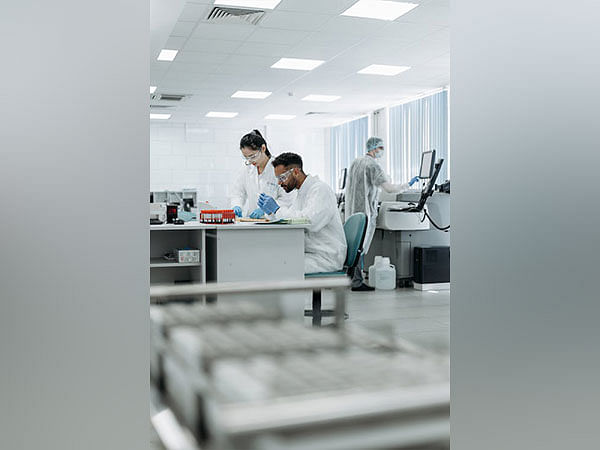Ikoma [Japan], December 28 (ANI): To ensure that the body can fight off infection without harming its own tissues, the immune system in humans is a very complicated network of cells, signals, and reactions that is strictly regulated. Researchers from Japan have now revealed a brand-new mechanism through which the immune system defends lung tissue against viral infections.
In a study published in Cell Reports, researchers from Nara Institute of Science and Technology (NAIST) have revealed that antigen-specific killer T cells (CD8+ T cells) rapidly expand in the lungs when they encounter antigen-presenting alveolar macrophages (AMs) to protect against viral infection.
CD8+ T cells confer protective immunity against infection with respiratory viruses, such as influenza A virus (IAV) and severe acute respiratory syndrome coronavirus 2 (SARS-CoV-2), by killing infected cells. In order to target the correct cells for killing, naive CD8+ T cells must be primed by contact with antigen-presenting cells (APCs), which mediate the uptake of virus-infected cells and present their antigens, in a process known as cross-presentation. The primed CD8+ T cells then clonally expand and differentiate into effector or long-lived antigen-specific memory T cells.
“Multiple cell types can present antigen to CD8+ T cells in the lungs, although the role of tissue-resident macrophages in this process is unclear,” explains Takumi Kawasaki, lead author of the study. “AMs are the first cells in the lungs that encounter infectious materials, environmental particles, surfactants, and dying cells, and they are important for the host defense against bacterial and fungal infection, so we suspected that they were also important in protecting against respiratory virus infection.”
To test this, the researchers explored the mechanisms by which APCs instruct antigen-specific CD8+ T cells in the lungs. First, mice were primed by vaccination with a specific antigen or infection with IAV, and then they were subjected to secondary immunization or re-infection.
“We determined that antigen-presenting AMs present inhaled antigen to memory CD8+ T cells,” says senior author of the study, Taro Kawai, “and that this resulted in a rapid expansion of antigen-specific CD8+ T cells in the lungs.”
Furthermore, the researchers found that AMs help to develop resident memory-type cell population by producing interleukin 18. Importantly, administration of antigen-loaded AMs to mice induced the proliferation of resident memory-type CD8+ T cells.
“This strategy may improve the efficacy of CD8+ T cell-dependent cellular immunity,” said Kawai.
Given that the lung is a major tissue for IAV and SARS-CoV-2 infection, the findings from this study regarding the mechanism of lung-resident memory CD8+ cell expansion are expected to lead to the development of new vaccines that induce cellular immunity. Virus-specific antigen-presenting AMs could be delivered as a type of “cell transplant vaccine” in the future. (ANI)
This report is auto-generated from ANI news service. ThePrint holds no responsibility for its content.






